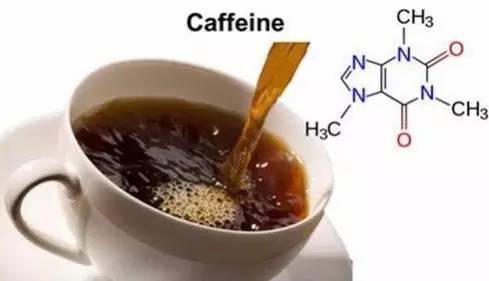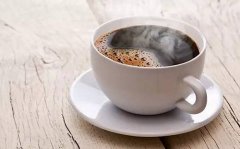How much is Jamaica Blue Mountain Coffee? Jamaica Blue Mountain Coffee Price

For professional baristas, please follow the coffee workshop (Wechat official account cafe_style)
The shipment of Blue Mountain coffee was so small that in 1717 King Louis XV of France ordered coffee to be grown in Jamaica, and in the mid-1920s, the Governor of Jamaica, Nicholas. Nicholas Lawes imported Arabica seeds from Martinique and began to plant them in St. Andrew. To this day, St. Andrews is still one of the three major producers of Jamaican Blue Mountain Coffee, with the other two producing areas: Portland (Portland) and St. Thomas (St.Thomas).
As Japan has always invested in the Jamaican coffee industry, most of the Blue Mountain Coffee is now owned by the Japanese, and they have also obtained the right of priority to buy Blue Mountain Coffee. In 1992, Jamaica sold 688 tons of Blue Mountain coffee to Japan, 75 tons to the United States and 59 tons to Britain. Now, 90% of Blue Mountain coffee is bought by the Japanese. Now that the rest of the world can only get 10% of Blue Mountain, Blue Mountain coffee is always in short supply, regardless of the price.
This is the packaging of coffee beans. The authentic products are imported from Blue Mountain.
Jamaica BLUE MOUNT
Country: Jamaica
Altitude: 1600 m
Producing area: St. Thomas diocese
Baking degree: medium baking
Treatment: washing
The "secret" of the pure taste of Blue Mountain Coffee
Their coffee trees are on rugged hillsides, and the picking process is so difficult that non-local skilled female workers are simply unable to do it. It is very important to choose the right ripe coffee beans when picking. Immaturity or ripeness will affect the quality of the coffee. The picked coffee beans are shelled on the same day, and then let them ferment for 18 hours. After that, the coffee beans were cleaned and screened. The subsequent process is to dry, which must be carried out on the cement floor or on a thick blanket until the humidity of the coffee beans drops to 12% 14%. And then store it in a special warehouse. Take it out and roast when needed, then grind it into powder. These procedures must be strictly mastered, otherwise, the quality of coffee will be affected.
Variety: iron pickup
Processing plant: Abbey Green farm
Flavor: sweet, sour and bitter match perfectly
Identify the true and false Blue Mountains
1 shape: the raw beans of Blue Mountain Coffee are cyan, neat in appearance, medium in size and slightly warped at both ends. After baking, the volume increases a lot, very full.
2 grinding beans: the real blue mountain coffee beans grow at high altitude, its cytoplasmic structure is relatively loose, it feels very crisp, cool and continuous when grinding by hand, and there is no feeling of resistance.
3 aroma: the aroma is very rich and dense; the so-called blended Blue Mountain Coffee does not have this aroma.
4 Taste: the real Blue Mountain Coffee has a balanced and full-bodied taste, without any feeling of prominence or lack of taste, which is unmatched by any other coffee beans, and the most critical identification point. The aroma of blue mountain peas is more subtle and the taste is relatively stronger.
5 feeling: blue Mountain Coffee, as the best coffee in the world, has classic balanced characteristics, and it is inevitable to have some subconscious and indescribable satisfaction when tasting it.
The blue mountain of Jamaica by hand. 15g powder, medium grinding (small Fuji ghost tooth cutter 4 grinding), v60 filter cup, 88-89 degrees water temperature, 30g water injection for the first time, steaming for 27 seconds, water injection to 105g water cut off, wait for the amount of water in the powder bed to reach half and then water injection, slow water injection until 225g water, no water powder ratio at the end, 1:15, extraction time 2:00
Factory name: coffee factory address: No. 10, Dongshankou Baoqian Street, Yuexiu District, Guangzhou City, contact: 020-38364473 shelf life: 90 net content: 100g packaging: raw and ripe coffee beans in bulk: whether coffee beans contain sugar: sugar-free origin: Jamaica roasting degree: moderate baking
Blue Mountain Coffee refers to coffee brewed from beans from the Blue Mountains of Jamaica. According to the grade, it is divided into Jamaica Blue Mountain Coffee and Jamaican Alpine Coffee. The Blue Mountains are located in the eastern part of the island of Jamaica, hence its name because it is surrounded by the Caribbean Sea. On clear days, the sun shines directly on the blue sea, and the peaks reflect the bright blue light of the sea. The highest peak of the Blue Mountains, 2256 meters above sea level, is the highest peak in the Caribbean, which is located in the coffee belt, with fertile volcanic soil, fresh air, no pollution, humid climate, foggy and rainy all the year round (the average precipitation is 1980 mm, the temperature is around 27 degrees). Such a climate has created the world-famous Jamaican Blue Mountain Coffee, as well as the second most expensive coffee in the world.
[flavor] the taste is rich and mellow, the sweet, sour and bitter taste of coffee is perfect, there is no bitterness at all, only a moderate and perfect sour taste and a long-lasting fruit taste.
Maybe Jamaica Blue Mountain Coffee is the most famous coffee in the world, but in fact, few people know its history and why its price is so high. The first person to introduce coffee to the island of Jamaica in 1789 was a Frenchman who escaped the French Revolution. The first coffee was cultivated to increase local consumption and export in France, and the local industry was very small in the first 100 years. However, in 1932, the Jamaican Conference Law was passed to encourage coffee farming to reduce the island's dependence on sugar exports. In order to ensure the quality of Blue Mountain Coffee, changes have been made in the "Jamaican Coffee Industry" to standardize the processing process, improve coffee quality and make marketing equal, so as to save the fate of top coffee. The Jamaican Industry Association is responsible for the quality of Jamaican Blue Mountain Coffee. In addition, the lush smaller coffee on the island is equally good, and gives final authority to Jamaican coffee exports-all coffee must go through the Jamaican Industry Association before it can be exported.
Important Notice :
前街咖啡 FrontStreet Coffee has moved to new addredd:
FrontStreet Coffee Address: 315,Donghua East Road,GuangZhou
Tel:020 38364473
- Prev

Characteristics of Jamaican Blue Mountain Coffee beans
Professional barista communication please follow the coffee workshop (Wechat official account cafe_style) this is the packaging of coffee beans, the authentic import of Blue Mountain. Jamaica BLUE MOUNT country: Jamaica altitude: 1600 m production area: St. Thomas parish roasting degree: medium roasting treatment: why washed Blue Mountain coffee taste pure secret their coffee tree full length in the rugged
- Next

Kenya PB Coffee hand data how to drink Kenya PB
For the exchange of professional baristas, please follow the coffee workshop (Wechat official account cafe_style) Kenya Nyeri Thagrini Peaberry farm introduction French and British missionaries and researchers sifted in Kenya at the beginning of the 20th century.
Related
- Detailed explanation of Jadeite planting Land in Panamanian Jadeite Manor introduction to the grading system of Jadeite competitive bidding, Red bid, Green bid and Rose Summer
- Story of Coffee planting in Brenka region of Costa Rica Stonehenge Manor anaerobic heavy honey treatment of flavor mouth
- What's on the barrel of Blue Mountain Coffee beans?
- Can American coffee also pull flowers? How to use hot American style to pull out a good-looking pattern?
- Can you make a cold extract with coffee beans? What is the right proportion for cold-extracted coffee formula?
- Indonesian PWN Gold Mandrine Coffee Origin Features Flavor How to Chong? Mandolin coffee is American.
- A brief introduction to the flavor characteristics of Brazilian yellow bourbon coffee beans
- What is the effect of different water quality on the flavor of cold-extracted coffee? What kind of water is best for brewing coffee?
- Why do you think of Rose Summer whenever you mention Panamanian coffee?
- Introduction to the characteristics of authentic blue mountain coffee bean producing areas? What is the CIB Coffee Authority in Jamaica?

